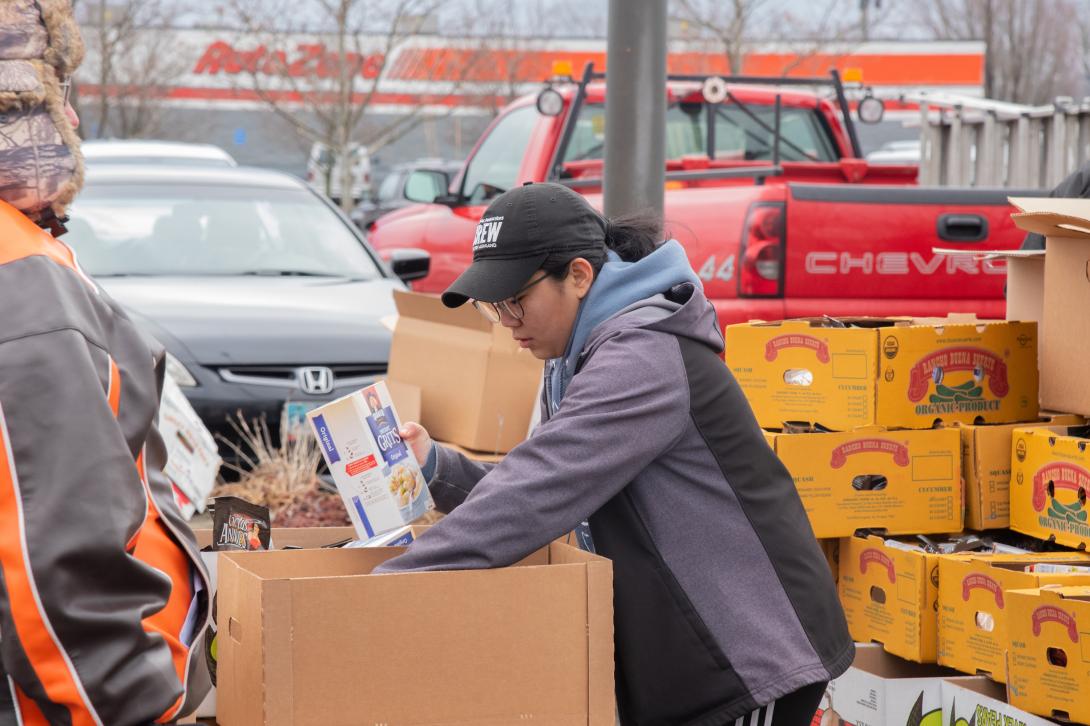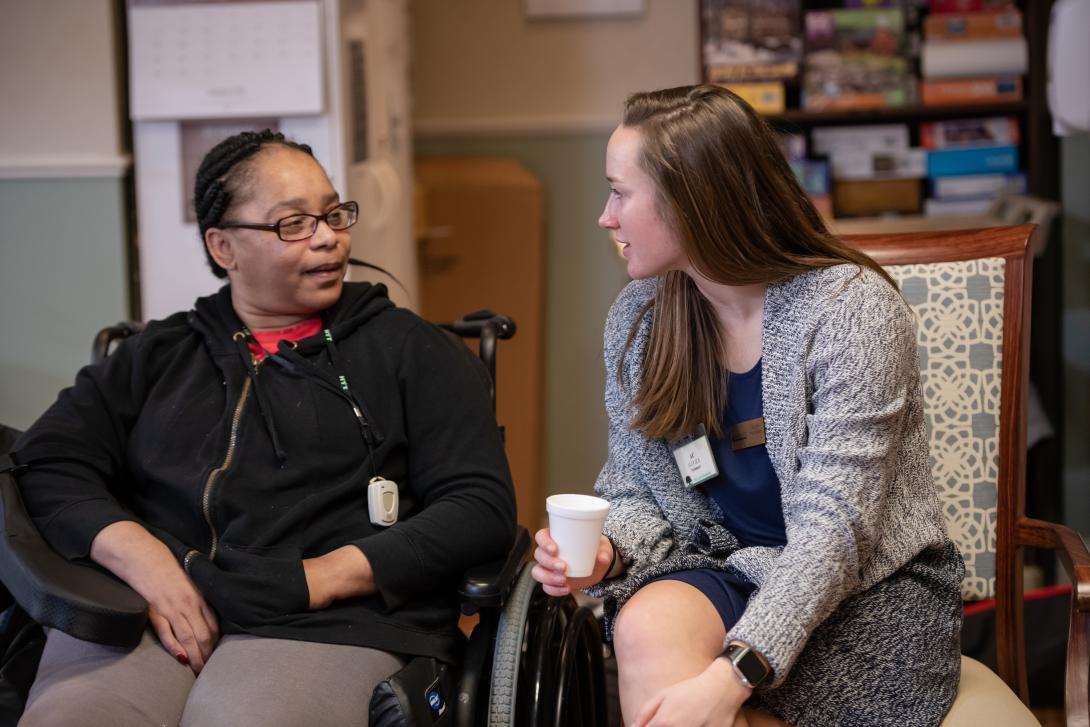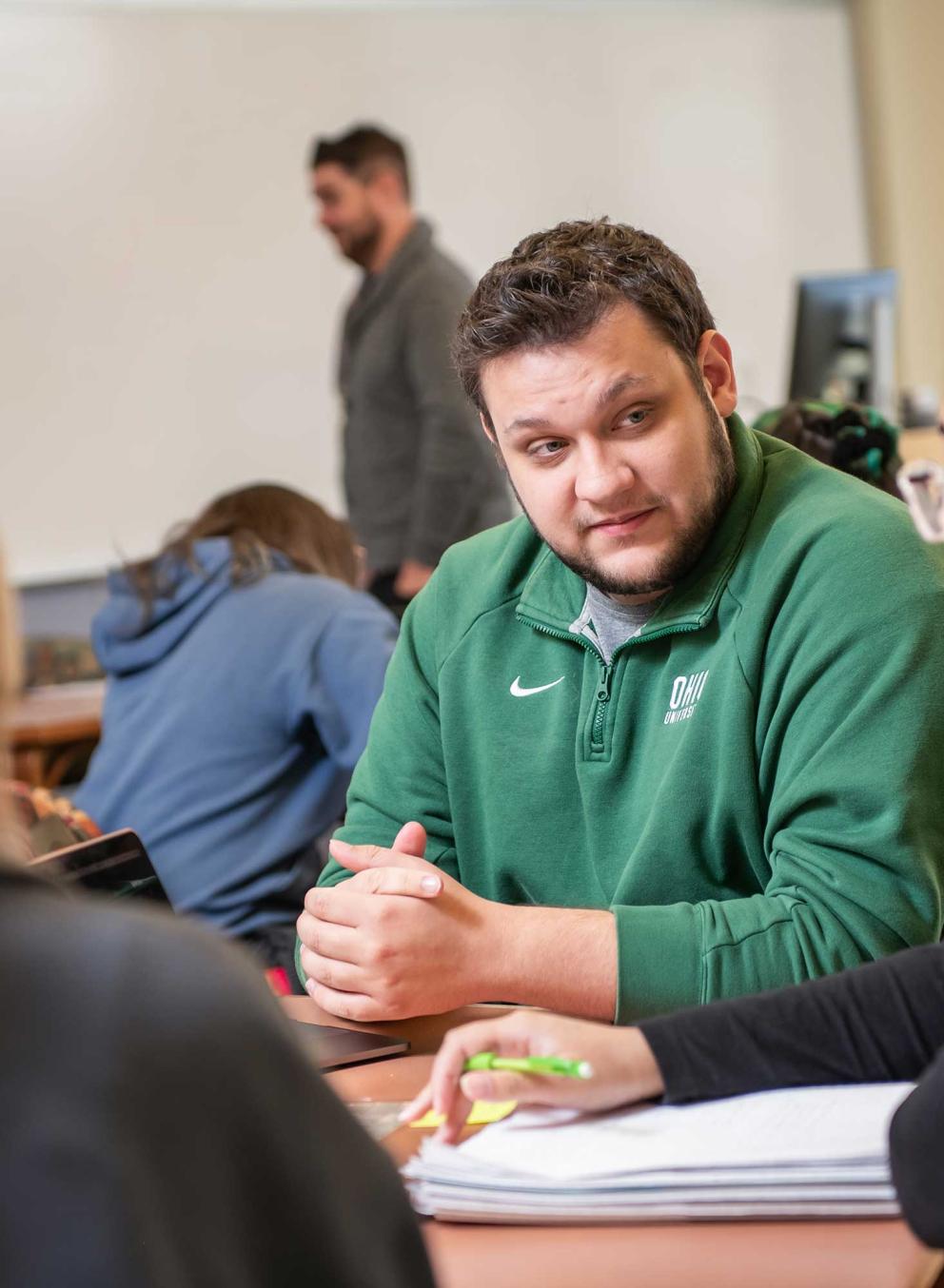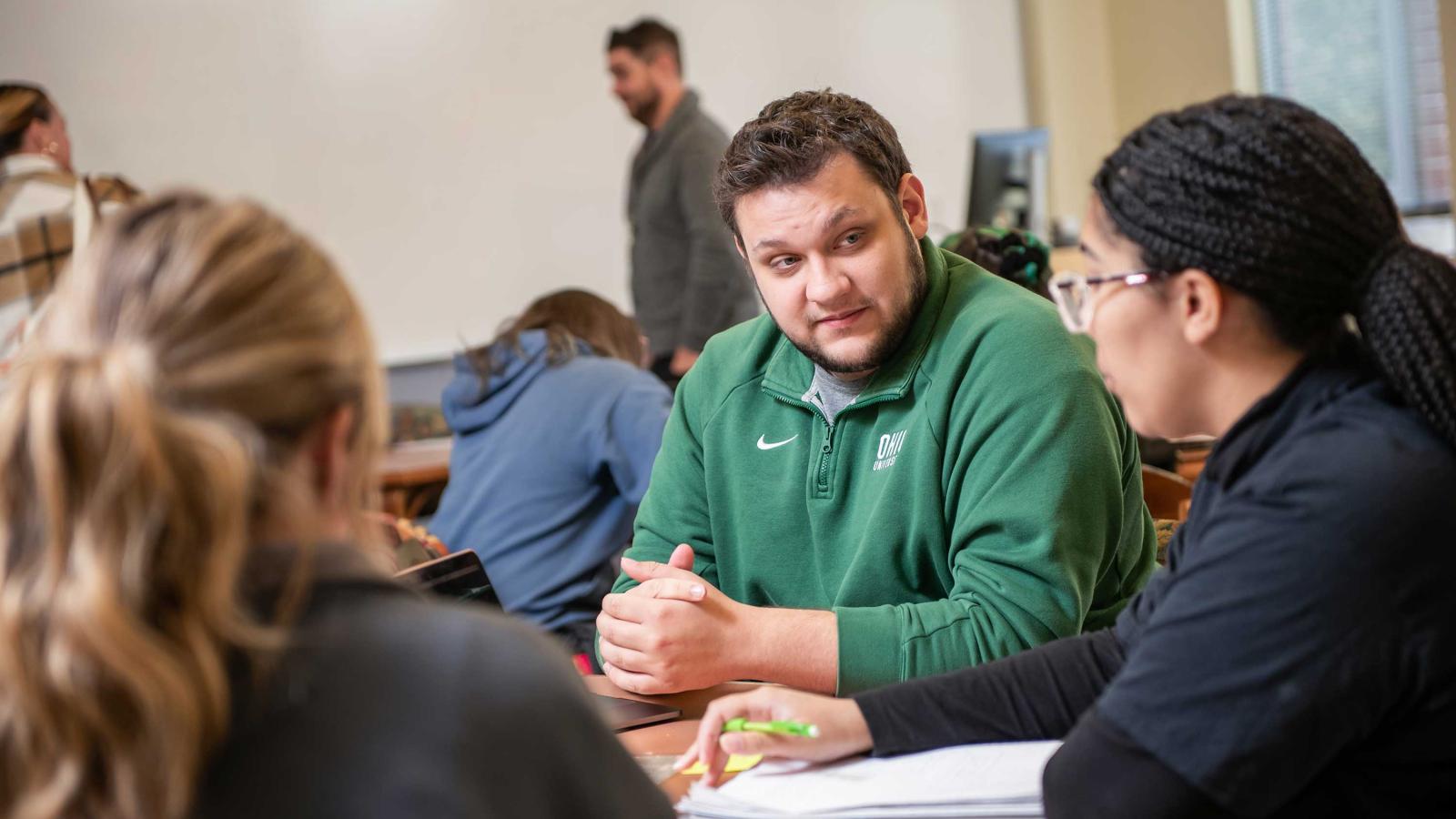Social Work Program Overview
Prepare yourself for a lifetime of advocacy. By joining Ashland University’s Social Work program, you will gain the experience and education needed to serve a variety of at-risk populations.
You will master crisis intervention, client assessment and case management while gaining insight into human behavior, the structure of relationships and the organization of communities.

Learning Experiences
In the Social Work program you will:
- Receive personalized attention in small classes.
- Learn from dedicated, innovative faculty who have extensive experience with social work.
- Gain invaluable, firsthand experience through field placements with more than 40 agency partners.
- Become fully prepared to obtain social work licensure. Past graduates have achieved more than a 90 percent pass average on the Association of Social Work Boards, exceeding the national pass rate of 78 percent and the Ohio pass rate of 83 percent.
- In the past five years, more than 95 percent of graduates have received a job offer or been accepted to a graduate school within six months after graduation.
As a senior, you will complete a 500-hour agency placement working under the direction of a Licensed Social Worker (LSW) to gain experience working with clients in real-life situations.
To learn more about what you can expect in the Social Work program, refer to the Ashland University Social Work Handbook.

Sample Curriculum
For additional information about the Social Work curriculum, review the Four-Year Curriculum Guide and Academic Catalog.
First Year
Second Year
Third Year
Fourth Year
Dean's Scholarship
The Dean's Scholarship was created to enhance the undergraduate academic experience for new first-time and transfer students enrolled in a major within the College of Arts & Sciences. It is a merit-based, renewable scholarship of $1,500 that can be "stacked" on top of other awarded AU academic scholarships. In addition, students have the opportunity to participate in unique academic communities with a focus on career coaching and preparation.
Graduate Outcomes
Upon graduating from the Social Work bachelor’s degree program, you will obtain the state licensure required to become a Licensed Social Worker (LSW) in the state of Ohio and many other states.
Typically, more than 95 percent of graduates receive a job offer or are admitted to a graduate school within six months after graduation.
Past graduates have achieved more than a 90 percent pass average on the Association of Social Work Boards.
Internships and Career Opportunities
More than 40 agencies partner with us to offer internship opportunities, including:
- Mental health clinics
- Children’s services agencies
- Schools
- Hospitals
- Rehabilitation clinics
- Long-term care facilities
- Community agencies


